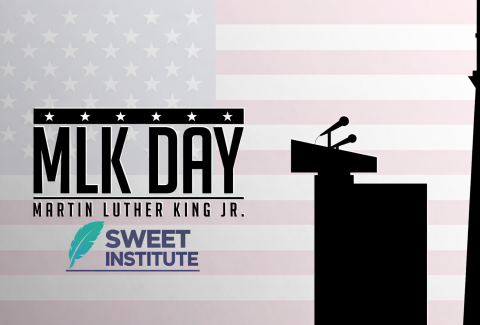Integrity in Action — Ethical Dilemmas and Everyday Courage
What do you do when the system says no, but your heart says yes?
What happens when policies and protocols clash with your ethics?
How do you respond when the “right” thing isn’t clear—or when doing the “right” thing might cost you your job?
These are the questions social workers and other clinicians, and social services staff face every single day. Not occasionally. Not just in extreme cases. But daily, in the quiet, often invisible corners of their practice.
In The Courage to Care: Stories of Healing, Hope, and the Power of Social Work, over 50 clinicians open up about what it really means to hold onto integrity in a field that constantly tests it. These are not abstract debates from a classroom. These are lived experiences—messy, human, and often incredibly brave.
Real Ethics, Not Just Ethics Codes
Most of us were trained to follow a code of ethics—and that’s important. But what happens when the code doesn’t account for the human reality in front of you?
One clinician remembered working with a young mother who was about to lose her housing because of a policy technicality. “Technically, she didn’t qualify anymore. But ethically, I couldn’t let her go without a fight.” The social worker went above and beyond, advocating through every level of bureaucracy to ensure the client’s stability.
Another story involved a client living with HIV who asked their clinician not to disclose their status to a family member who was unknowingly at risk. The clinician was torn. Confidentiality and harm reduction collided. “There were no easy answers,” they said. “Just a lot of sleepless nights and soul searching.”
These are not scenarios with clear solutions. And that’s exactly why they matter.
Standing Up, Even When Standing Alone
Several clinicians described moments when they were the only ones speaking up—when colleagues told them to stay quiet or when supervisors discouraged advocacy. Still, they persisted.
One social worker recalled being told by an administrator to “stop making waves” after raising concerns about racial bias in discharge decisions. But she couldn’t stay silent. “I wasn’t trying to be difficult,” she explained. “I was trying to be honest.”
Another remembered a young man being discharged from inpatient treatment with no real plan. “They said, ‘He’s stable now,’ but I knew he wasn’t ready.” The clinician fought for a step-down program, even when others pushed back. “I had to trust what I knew—not just clinically, but morally.”
These stories aren’t about being perfect. They’re about being principled.
Micro-Choices, Major Consequences
Ethical dilemmas don’t always come in big, dramatic moments. Sometimes, they’re in the micro-decisions—like whether to bend a rule so someone gets the services they need, or whether to speak up about something that others are ignoring.
A clinician shared about quietly using her lunch break to visit a client in the hospital because the agency wouldn’t approve the visit under billable hours. “It wasn’t heroic,” she said. “But it was human.”
Another talked about choosing to pause documentation in order to be fully present for a grieving client. “I knew it meant staying late to catch up,” she admitted. “But the moment demanded presence, not paperwork.”
In each of these small moments, integrity becomes a daily discipline—not a grand gesture.
Ethical Growth, Not Just Ethical Decisions
What The Courage to Care reveals is that ethics in social work isn’t just about decision-making. It’s about becoming the kind of person who can live with those decisions. It’s about checking in with yourself, revisiting your assumptions, and staying open to feedback—even when it’s hard.
One clinician told us, “There were times I thought I was right, and I wasn’t. I had to go back, apologize, and do better. That’s ethics too.”
Another said, “I used to think ethics was about having the answers. Now I think it’s about having the humility to ask the questions.”
This kind of ethical reflection is what sets social work apart. It’s not just about service—it’s about self-awareness, accountability, and courage.
Holding Integrity in a Fractured System
Social workers are often called to do the impossible—heal wounds without resources, advocate in broken systems, and protect dignity in environments that can feel anything but humane.
One clinician described the emotional toll of having to discharge clients due to funding limitations. “It broke me a little every time,” she said. “But I tried to make every goodbye count. I let them know it wasn’t about them. I let them know they mattered.”
Another talked about a policy that forced her to document diagnoses that didn’t fully match the client’s presentation—just to secure services. “It felt wrong. But without that label, they’d get nothing.”
These are the ethical minefields that social workers navigate constantly—and with extraordinary grace.
The Courage to Stay in Alignment
What ties all these stories together is not perfection, but alignment. The clinicians in The Courage to Care show us what it means to stay true to yourself, even in messy, complicated, high-stakes situations.
They remind us that ethics is not static—it’s alive. It breathes through our choices, our silences, our questions, and our courage.
They remind us that integrity isn’t about being right—it’s about being real.
And they remind us that, ultimately, The Courage to Care means having the courage to do what’s right, even when it’s hard.
Be Part of the Movement
If you’ve ever faced an ethical dilemma and wondered if you were alone—you’re not.
The Courage to Care: Stories of Healing, Hope, and the Power of Social Work brings together the voices of 50+ social workers who know what it means to face hard choices and keep choosing integrity.
The book will be published soon on Amazon.
To get updates, early access, and exclusive content, sign up NOW
Together, let’s honor the everyday acts of courage that make social work not just a profession—but a calling.







